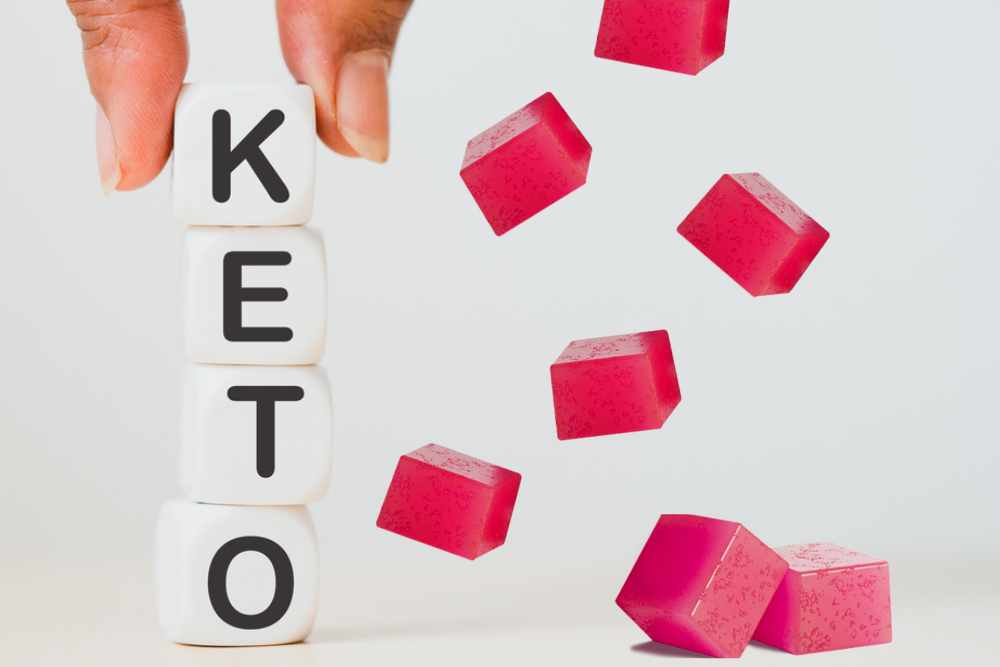CBD Drug Interactions & Medications Guide
CBD drug interactions can be serious, so it's important to be aware of what medications may be affected. Read on to learn more.
CBD is truly the “it” product in the health and wellness industry at the moment. With CBD’s range of therapeutic benefits and lack of psychotropic side effects, it’s no wonder that CBD’s popularity has skyrocketed.
But while CBD is largely safe and well-tolerated, that doesn’t mean you can take it without any considerations.
There is some risk of CBD drug interactions you need to be aware of to ensure your CBD use is both safe and effective.
What Is CBD?
CBD, or cannabidiol, is a cannabinoid found in cannabis and hemp.
Although it is a major compound in cannabis, CBD won’t get you high. THC, another major cannabinoid, is instead responsible for the psychotropic effects of cannabis. This means that CBD is ideal for those who want to experience the therapeutic benefits of cannabis but without the mind-altering effects. The fact that CBD can’t induce a high is likely due to CBD’s weak ability to bind to cannabinoid receptors.

Instead of binding to cannabinoid receptors, CBD interacts with non-cannabinoid receptors and other receptor pathways to induce its effects.
Research shows that CBD holds a range of therapeutic benefits and is largely safe and well-tolerated.
What Can It Be Used for?
One of the impressive things about CBD is its range of health benefits.
Research shows that CBD may be able to treat a range of conditions, with evidence showing its potential to treat inflammation (1), pain (2), mood disorders like depression and anxiety (3, 4), sleep conditions (5), and skin disorders (6).

When used in combination with THC, CBD is even used as a treatment for serious diseases like epilepsy and multiple sclerosis in many countries. Research also shows that this CBD/THC treatment could also be effective in reducing pain associated with arthritis (7).
How Does CBD Interact with the Body?
When it comes to how CBD interacts with your body and possible CBD drug interactions, there is one enzyme family that you should be aware of called CYP450.
Also known as cytochrome P450, CYP450 enzymes exist in your liver, where they are responsible for metabolizing more than 60% of clinically prescribed medications (8). A large number of FDA approved pharmaceuticals are metabolized and deactivated by CYP450.
This enzyme group is important to drug prescribing because the appropriate dosage of a medication is often impacted by how long a drug takes to be metabolized by CYP450 enzymes. When multiple drugs are consumed at the same time, they interact with the CYP450 system. Drugs can be metabolized differently than they typically would be and this can result in serious consequences.

There is evidence that CBD inhibits the CYP450 enzymes CYP3A4, CYP3A4, CYP3A7, and CYP2D6 (9, 10). Inhibiting these enzymes means that CBD can have serious drug interactions. Consuming CBD alongside any medications that use these enzymes to metabolize could result in their processing being slowed. The effects of the medications could then be stronger or last longer than anticipated.
CYP450 enzymes can also be interfered with by increasing their activity and the metabolism of certain drugs, reducing their clinical effectiveness. St. John’s wort is a famous example of this type of interaction. St. John’s wort is a popular herbal supplement used to treat cognitive symptoms like anxiety and sleep disorders. St. John’s wort has been found to increase the activity of CYP3A4 (11), meaning that it could reduce the effectiveness of roughly 50% of medications. Any medications that can be metabolized by CYP3A4 shouldn’t be taken alongside St. John’s wort, e.g. some oral contraceptives, antibiotics, and pain medications.
Be sure to keep this type of activity increase in mind when considering possible CBD drug interactions.
What Drugs Should Not Be Taken with CBD?
If you want to add CBD to your routine, it’s important to first be aware of what drugs should not be taken with CBD.
Because of CBD’s ability to affect the metabolization of CYP450 enzymes, your medication could either be more or less effective than normally expected. That change could have some serious consequences for your health.

Medications that involve the management of heart rate or blood pressure could be especially dangerous if their metabolism is altered, so be sure to do your research before adding CBD to your routine if you take blood pressure or heart rate medication.
Possible CBD drug interactions include (12):
- Steroids: e.g. hydrocortisone, prednisone
- Antihistamines: e.g. cetirizine, loratadine
- HIV antivirals: e.g. tenofovir, atazanavir
- Immune modulators: e.g. calcineurin inhibitors, antimetabolites
- HMG CoA reductase inhibitors: e.g. Lipitor, Zocor, Crestor
- Calcium channel blockers: e.g. amlodipine, diltiazem
- Benzodiazepines: e.g. xanax, valium, lorazepam
- Prokinetics: e.g. domperidone, metoclopramide
- Antiarrhythmics: e.g. amiodarone, flecainide
- Antibiotics: e.g. amoxicillin, doxycycline
- Antidepressants: e.g. sertraline, citalopram
- Anesthetics: e.g. diazepam, amobarbital
- NSAIDs: e.g. aspirin, diclofenac
- PPIs: e.g. omeprazole, lansoprazole
- Anti-epileptics: e.g. acetazolamide, clonazepam
- Antipsychotics: e.g. risperidone, clozapine
- Beta-blockers: e.g. bisoprolol, propranolol
- Sulfonylureas: e.g. Amaryl, Tolinase
- Oral hypoglycemic agents: e.g. repaglinide, glipizide
- Angiotensin II blockers: e.g. valsartan, candesartan
What Medications Can Be Taken with CBD?
While CYP450 enzymes metabolize most medications, with advice from your doctor, it is possible to take them safely alongside CBD. There are also medications that won’t be affected by CBD’s interaction with the CYP450 family.

For example, melatonin is one supplement that is safe to take alongside CBD. The sleep-inducing qualities of melatonin combined with the ability of CBD to improve the symptoms of sleep disorders are likely to work well together (13, 14). CBD/melatonin combined therapies, like CBD soft gels with melatonin, can be an easy way to incorporate both medications into your routine.
Which CBD Product Is Right for Me?
When it comes to deciding which CBD product is best for you, different dosage requirements will be one factor to keep in mind, especially if you take any medications that are metabolized by CYP450.
Different CBD consumption methods will result in varying dosages. The bioavailability, or absorption, of CBD, differs between consumption methods, so you should keep this in mind when choosing the best CBD product for you.

CBD vapes and nasal sprays will have the highest bioavailability, meaning that they will result in the most CBD transferring into your bloodstream. Edible CBD products like CBD with caffeine or CBD oil tinctures will result in a medium bioavailability, and CBD topicals like CBD soft gels will result in a lower bioavailability and more gentle effects.
The right CBD product for you will come down to your personal preferences, needs, and possible CBD drug interactions. Being aware of what drugs should not be taken with CBD and what CBD consumption methods will be well-tolerated will help you to have the most effective and safest results from CBD.
* DISCLAIMER: The information in this article is for educational purposes only. It does not exploit or provide medical advice of any kind. Therefore, any reliance you place on the information below is strictly at your own risk. Please check with your medical provider before starting or changing a CBD routine.
Kirsten Thornhill, MSNanocraft SciencesContent Writer x Physiologist x ResearcherKirsten Thornhill was born and raised in a small farm town in Stanislaus County, California. Kirsten graduated with a Master of Science degree in exercise physiology from Point Loma Nazarene University in San Diego, CA. She is very passionate about human physiology and the metabolic and nutritional adaptations that occur during exercise in active individuals and athletes. Kirsten has specialized in maximal oxygen consumption testing in athletes and teaching laboratory, clinical, practical, and research applications of exercise testing to college students. She enjoys educating and informing people about the importance of lifetime movement, plant-based eating, and health research and development. Her passion for natural, lifestyle medicine enables her to strive when promoting health and education.
Sources:
- Couch, D. G., Cook, H., Ortori, C., Barrett, D., Lund, J. N., & O’Sullivan, S. E. (2019). Palmitoylethanolamide and Cannabidiol prevent inflammation-induced Hyperpermeability of the human gut in vitro and in vivo—A randomized, placebo-controlled, double-blind controlled trial. Inflammatory Bowel Diseases, 25(6), 1006-1018. https://doi.org/10.1093/ibd/izz017
- Hammell, D., Zhang, L., Ma, F., Abshire, S., McIlwrath, S., Stinchcomb, A., & Westlund, K. (2015). Transdermal cannabidiol reduces inflammation and pain-related behaviours in a rat model of arthritis. European Journal of Pain, 20(6), 936-948. https://doi.org/10.1002/ejp.818
- Zanelati, T., Biojone, C., Moreira, F., Guimarães, F., & Joca, S. (2009). Antidepressant-like effects of cannabidiol in mice: Possible involvement of 5-HT1A receptors. British Journal of Pharmacology, 159(1), 122-128. https://doi.org/10.1111/j.1476-5381.2009.00521.x
- Masataka, N. (2019). Anxiolytic effects of repeated Cannabidiol treatment in teenagers with social anxiety disorders. Frontiers in Psychology, 10. https://doi.org/10.3389/fpsyg.2019.02466
- Shannon, S. (2019). Cannabidiol in anxiety and sleep: A large case series. The Permanente Journal. https://doi.org/10.7812/tpp/18-041
- Palmieri, B., Laurino, C., & Vadala, M. (2019). A therapeutic effect of cbd-enriched ointment in inflammatory skin diseases and cutaneous scars. Clinical Therapeutics, 170(2). https://doi.org/10.7417/CT.2019.2116
- Blake, D. R., Robson, P., Ho, M., Jubb, R. W., & McCabe, C. S. (2005). Preliminary assessment of the efficacy, tolerability and safety of a cannabis-based medicine (Sativex) in the treatment of pain caused by rheumatoid arthritis. Rheumatology, 45(1), 50-52. https://doi.org/10.1093/rheumatology/kei183
- Iffland, K., & Grotenhermen, F. (2017). An update on safety and side effects of Cannabidiol: A review of clinical data and relevant animal studies. Cannabis and Cannabinoid Research, 2(1), 139-154. https://doi.org/10.1089/can.2016.0034
- Yamaori, S., Ebisawa, J., Okushima, Y., Yamamoto, I., & Watanabe, K. (2011). Potent inhibition of human cytochrome P450 3a isoforms by cannabidiol: Role of phenolic hydroxyl groups in the resorcinol moiety. Life Sciences, 88(15-16), 730-736. https://doi.org/10.1016/j.lfs.2011.02.017
- Yamaori, S., Okamoto, Y., Yamamoto, I., & Watanabe, K. (2011). Cannabidiol, a major Phytocannabinoid, as a potent atypical inhibitor for CYP2D6. Drug Metabolism and Disposition, 39(11), 2049-2056. https://doi.org/10.1124/dmd.111.041384
- Markowitz, J. S. (2003). Effect of St John's wort on drug metabolism by induction of cytochrome P450 3a4 enzyme. JAMA, 290(11), 1500. https://doi.org/10.1001/jama.290.11.1500
- Flockhart, D. A. (2020). Drug Interactions Flockhart Table ™. Drug Interactions. https://drug-interactions.medicine.iu.edu/MainTable.aspx
- Xie, Z., Chan, F., Li, W. A., Geng, X., Li, C., Meng, X., Feng, Y., Liu, W., & Yu, F. (2017). A review of sleep disorders and melatonin. Neurological Research, 39(6), 559-565. https://doi.org/10.1080/01616412.2017.1315864
- Cannabidiol in anxiety and sleep: A large case series. The Permanente Journal. https://doi.org/10.7812/tpp/18-041
- #cannabidiol
- #cbd
- #cbdforathletes
- #cbdoil
- #hemp
Tagged under














No comments yet!
Be the first to comment